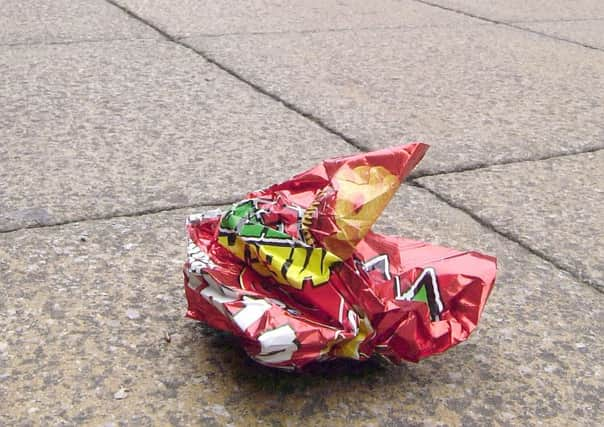Council gives out more than 6,400 fines to people dropping cigarette ends


And 6,434 fines of £75 were dished out to members of the public dropping cigarette butts on the ground.
It comes as Havant Borough Council’s zero-tolerance approach to littering reaches its two-year anniversary next month.
Advertisement
Hide AdAdvertisement
Hide AdThe figures show a total of 6,639 fines have been given out since May 2014 – the overwhelming majority for cigarettes, with 200 for general litter and five for dog fouling.
A total of 558 people have been prosecuted through the courts for non-payment of the fines.
The scheme has generated £354,900.
The vast majority of this cash – some £284,000 – has gone to Kingdom, the company that pays three wardens to patrol the streets of Havant, Waterlooville, Hayling Island, Emsworth and Leigh Park.
A total of £70,714 has gone back into council coffers and around half of that has been spent on supporting back-office functions, buying new bins with ashtrays, staff training, an anti-dog fouling campaign, and graffiti removal.
Advertisement
Hide AdAdvertisement
Hide AdThe rest of the cash will be spent on ‘future environmental enhancements’, say council officers.
There were mixed views about the scheme yesterday.
Lorraine Clifford, who runs the British Heart Foundation shop in West Street, Havant, was concerned the fines were too heavy-handed and led to confrontations in the street.
‘A warning first would be nice,’ she said.
‘A lot of people have been stopped outside our shop.’
But she added: ‘The streets are cleaner. People are using the cigarette bins.’
Mike Joines, who runs Zoom Hairdressing, in Leigh Park, said: ‘I am disgusted by the number of cigarette butts on the pavements in shopping centres. Good luck to the council – long may they continue to do it. It takes years for a cigarette butt to decompose.’
Advertisement
Hide AdAdvertisement
Hide AdNatalie Meagher, head of neighbourhood support, said: ‘The council does not seek to earn money from this project. The intention is for it to be cost-neutral and any excess is utilised in connection with tackling environmental crimes.’